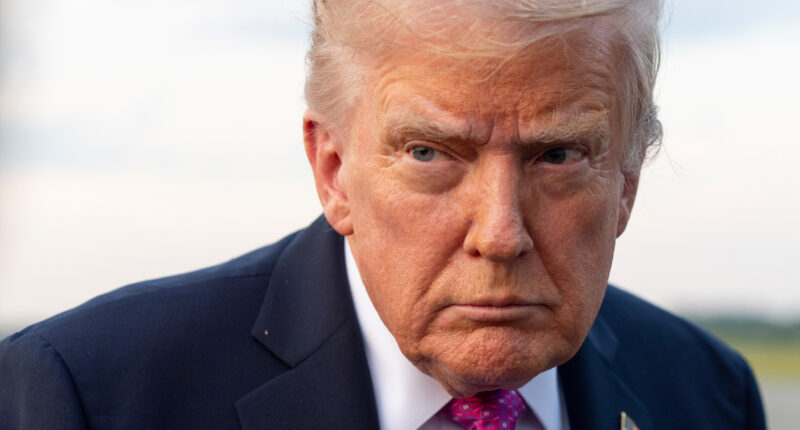Share this @internewscast.com
President Donald Trump shared on his social media platform that discussions between U.S. and Chinese representatives went positively, resulting in an agreement concerning “a specific company that young people in the U.S. were eager to preserve.”
Trump’s statement implies that TikTok is the company in question, a Chinese-related social media app that U.S. regulations mandated to either be sold or halt operations.
The president has consistently postponed the deadline regarding TikTok’s future and provided no clear update on an agreement when questioned by the media on Sunday night. Trump also mentioned his plans to converse with Chinese President Xi Jinping on Friday.
There was no immediate confirmation from China.
TikTok is just one of over 100 applications created by ByteDance, a tech company established in 2012 by Chinese entrepreneur Zhang Yiming, with its headquarters situated in the Haidian district of Beijing.
In 2016, ByteDance introduced a brief video app named Douyin in China, followed by an international version called TikTok. It later acquired Musical.ly, a lip-sync app favored by teenagers in the U.S. and Europe, merging it with TikTok while separating it from Douyin.
Afterward, TikTok experienced a surge in popularity across the U.S. and globally, marking it as the first Chinese app to significantly penetrate Western markets. Unlike other platforms, TikTok offered personalized content based on user interests.
The often silly videos and music clips content creators posted gave TikTok an image as a sunny corner of the internet where users could find fun and a sense of authenticity. Finding an audience on the platform helped launch the careers of music artists like Lil Nas X.
TikTok gained more traction during the shutdowns of the COVID-19 pandemic, when short dances that went viral became a mainstay of the app. To better compete, Instagram and YouTube eventually came out with their own tools for making short-form videos, respectively known as Reels and Shorts. By that point, TikTok was a bona fide hit.
Challenges came in tandem with TikTok’s success. U.S. officials expressed concerns about the company’s roots and ownership, pointing to laws in China that require Chinese companies to hand over data requested by the government. Another concern became the proprietary algorithm that populates what users see on the app.
Copyright © 2025 by The Associated Press. All Rights Reserved.

















